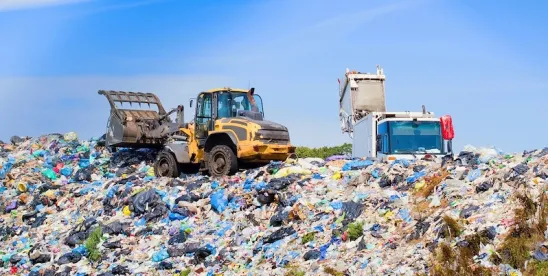New “Right to Repair” legislation worldwide seeks to extend product lifespan and increase circularity, thereby reducing premature waste. The legislation often aims to facilitate consumer and independent company repair of products by requiring manufacturers to provide the documentation, tools, and parts needed to make repairs. These initiatives aim to improve the longevity of products and boost the repair sector, but can also raise concerns about confidential business information in repair manuals, burdensome compliance obligations for manufacturers, and liability and other risks associated with third-party repairs of products.
A “Right to Repair” in the EU
In March 2023, the European Commission proposed a Directive on the “Right to Repair.” The Annexes to the Directive include the following regulated products: household appliances, TVs and electronic displays, welding equipment, vacuum cleaners, servers and data storage products, and mobile phones and tablets. The proposal includes several measures designed to promote and facilitate repair and reuse:
- A legal guarantee prioritizing repair of a product over replacement. Consumers are only able to request replacement if the repair is more expensive.
- New rights and tools making repair easier and more accessible to consumers:
- A right for consumers to claim repair to producers for products.
- A producers’ obligation to inform consumers about the products that consumers must repair themselves.
- An online national repair platform to connect consumers with repairers and sellers of refurbished goods in their area.
- A European Repair Information Form that consumers can request from any repairer, setting forth standardized information on the conditions and price of repair services.
- A European quality standard for repair services.
This proposal is in line with extended producer responsibility policies and regulations, where producers bear the burden of replacing, recycling, and, now, repairing products that they introduce into the market. However, it also encourages producers to create and design more durable, reparable, and reusable products from the outset. The Impact Assessment of the proposal provides additional information about consumer behavior and the key objectives of the Directive. Overall, this Directive complements many other European Union (EU) initiatives fostering sustainable consumption under the European Green Deal, such as the Ecodesign for Sustainable Products Regulation and the Proposal on the Directive on Green Claims.
The EU Commission submitted the Directive on March 22, 2023, and it is open for public feedback until May 25, 2023. The European Parliament and the Council have access to all public feedback in their review of the Directive. The Directive proposes a two-year time period (after entry into force) for EU member states to incorporate laws, regulations, and administrative provisions necessary to comply with the Directive.
U.S. Initiatives
While the United States does not have a direct, federal “Right to Repair” law, the Magnuson Moss Warranty Act (MMWA) (1975) prohibits consumer products warrantors from conditioning warranty coverage on consumer use of an article or service identified by brand, trade, or corporate name, unless they do so free of charge or unless they have received a waiver from the Federal Trade Commission (FTC). Additionally, the Digital Millennium Copyright Act creates an exemption under Section 1201 for right to repair where one might otherwise be liable for copyright infringement in backing up and restoring software. In May 2021, the FTC issued its “Nixing the Fix: An FTC Report to Congress on Repair Restrictions,” which overviews the landscape of the repair market, repair restrictions, manufacturer perspectives, how to increase consumer choice, and potential issues for stakeholders to take into account. Biden’s July 2021 Executive Order on Promoting Competition in the American Economy encouraged the FTC to use its power under MMWA to make independent and do-it-yourself repairs more accessible to consumers by developing rules to prevent anticompetitive restrictions on device reparability. Shortly thereafter, FTC issued a policy statement that encouraged the public to submit complaints to support greater enforcement of the MMWA in addition to announcing it would scrutinize repair restrictions for violations of antitrust laws and determine whether repair restrictions constitute unfair or prohibited deceptive acts or practices in violation of Section 5 of the FTC Act. After a unanimous vote by the FTC to ramp up enforcement related to right to repair, FTC pursued three right to repair cases.
Outside of existing laws and regulations, state attorneys general recently called on Congress to advance “Right to Repair” legislation while also supporting state-level legislative initiatives. Several states have passed their own “Right to Repair” legislation, often narrowly focused on a specific product industry and sometimes conditioned on manufacturer warranties. For example:
- The California Song Beverly Act requires electronics and appliance manufacturers to make repair parts and service manuals available to service and repair facilities, only if the manufacturer provides express warranties.
- The Colorado Consumer Wheelchair Repair Bill of Rights Act requires powered wheelchair manufacturers to provide parts, software, firmware, tools, and service documentation available to independent repair providers and owners of the wheelchairs.
- Indiana’s Commercial Code includes a provision on right to repair where audio and visual product manufacturers who make an express warranty regarding products costing $50 or more must make parts and service information available to service and repair facilities.
- The New York Digital Fair Repair Act passed last year requires original equipment manufacturers of certain new electronics, like cell phones and laptops, to make tools, parts, and repair information available to the public, effective December 2023.
- Rhode Island’s Commercial Code requires manufacturers to make replacement parts and service information available to warranty stations and independent service facilities for all new consumer products.
In 2023, at least 20 states have proposed their own form of “Right to Repair” legislation, showing increased state interest.
Conclusion
We are seeing new, creative initiatives to promote sustainable consumption and a circular economy, with Europe at the forefront. There are still many variables to consider, including how to make these measures cost-effective, and who should be responsible for the costs of repair.






 />i
/>i

